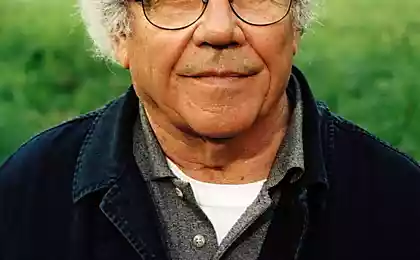471
The author of the obituary The New York Times about calls to relatives and a Victorian cliche

© Francois Trezin
the author of the obituary The New York Times about calls to relatives and Victorian cliche Not so long ago, newspaper epitaphs were considered a boring topic that nobody wanted to take, and today they are read with interest by millions of people. The magazine Paris Review talked with Margalit Fox is a regular contributor to the obituaries of the newspaper The New York Times about her work and how the memorial has changed this genre lately. Not yet born the child who would say: "When I grow up, I want to write obituaries." I didn't want. I started my career in The New York Times Book Review, where I worked as an editor. I liked to be surrounded by people who love books, and have an opportunity to read a lot. But if to speak about work, it was more like editing. If I continued to do this on, on my grave it would be possible to carve: "Fifty thousand times have replaced the comma to a semicolon". It so happened that little by little, I began to work freelance with several other publications who most needed the authors of the obituaries. After some time I moved to The New York Times, and there it has become my main occupation.
Of course, humans have a strong fear of death, but in fact, 98% of the obituary is about life. It is only two sentences about where and at what age people died. And the rest of the text is the interpretation of the person's life. In fact, maybe the obituaries is generally the most cheerful section of our newspaper.
Of course, 95% of my work is to write lyrics about the dead in tomorrow's paper. It is impossible to collect materials about all the people who are dying. Sometimes before you reach the rumor that some famous person is terminally ill. And here you drop everything, start to read about him, and he was not going to die. The hero of the first of my "blanks" that I did 20 years ago, is still alive.
Since in most cases we have not thoroughly prepared a dossier on the deceased person, we have to call his or her relatives. In all the time that I have been working with me refused to talk, maybe three families. Often family members call themselves. If we are talking about a public person who was the agent that calls, of course, agent. If I'm calling myself that once submitted, hear, covering the tube, my companion whispers: "This is a call from The New York Times!" In most cases people are very grateful that about a man who was dear to them, write.
As a rule, for the relatives it is very important that the obituary got the phrase "he died, surrounded by the warmth of their loved ones" or "she left the light in everyone's life who knew her". I never put that phrase in the text because they believe that no one needs a Victorian cliché. Yes and main purpose of the obituary is no longer the protection of the family.
I read the obituaries in the Newspapers was in General much more interesting. They used to be extremely formal. Everyone thought them very dull, so writing obituaries was a kind of punishment in the office. That all changed during Alden Whitman, "Mr. Bad news". He has managed to completely change the standard genre of the epitaph newspaper. Through his work, the obituaries are not only personalized, they even became not shameful to use humor.
I am often asked about the use of euphemisms in my work. If we are talking about "presets", then the great Whitman, of course, they were. When he collected the information in this dossier, it was said that it is "for possible future use" or just rang and was immediately told "We are updating your biography." I sometimes also use, and, in General, they always work.
The most important linguistic changes that have come into our practice is what we now call the cause of death. Today this area is used much less euphemisms than before. When I was in school, in the Newspapers described the death of Victorian cliches: "died" — was replaced by a "heart attack" and "died after a long disease" — "cancer". In the provincial Newspapers still kept this kind of code.
In the first half of the twentieth century is "people committed suicide" it was decided to write "people died by their own hand". Today we say exactly what happened. Of the details no one out, but the cause of death is called, even if it's such a taboo topic like HIV or suicide.
"I never choose the familiar tone in conversations with relatives of the dead, but in that moment, when she answered, I said, "Honey, what the hell happened?"
Because one day our newspaper published the obituary of a man who was still alive, now we have a rule: the text goes to print only after the fact of death confirmed by someone from relatives. Once I had to call for confirmation to the poet's widow, who yesterday took his own life. Any advice on how to behave in such a situation, nobody can give. It's completely unnatural: you call a stranger, who just happened most bitter event in your life, and say thanks to you about this now learn millions. I never choose the familiar tone in conversations with relatives of the dead, but in that moment, when she answered, I said, "Honey, what the hell happened?" It turned out that she didn't hear the shot in the bathroom: to protect her at least from this horror, the husband included in her room air conditioning at full capacity.
About suicide, especially if they were made by young people, is so hard to write. It is impossible to complete a text about a man who decided to commit suicide, and then stop thinking about him. It is indeed our good fortune that the majority of people about whom we write, dying much over eighty, in his bed, in the family circle.
Once we actually published an obituary about the man who was still alive. Our ballet writer saw in several European Newspapers mention of the fact that he died a Russian ballerina. It was Friday night, and to call to his European counterparts he could not. So the obituary came out the next day. Not surprisingly, we received many angry calls from her relatives. It turned out she was not only alive and relatively healthy, but still lived in a nursing home in Manhattan.
Source: theoryandpractice.ru























